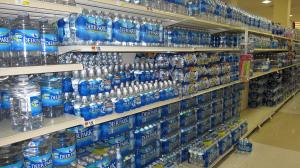
Although charging excessively high prices for goods and services during disasters can be illegal, price gouging is not unusual after large natural disasters. To offer some protection for consumers, states have price-gouging laws. South Carolina is one of 34 states with a price gouging law. In South Carolina, once a state of emergency is declared, the "Price Gouging During Emergency" law goes into effect prohibiting "unconscionable" prices until the state of emergency expires or is otherwise terminated.
Without any federal laws addressing price gouging, there is no economic definition or constraint set to classify "unconscionable" pricing. To tell the difference between price gouging and an average price increase, experts say to pay attention to nearby prices and if one business is charging an exorbitant amount unlike the others, it may indicate price gouging.
The best protection against price gouging is knowing what items should cost and having an emergency supply kit on-hand before a disaster occurs, but dishonest pricing can occur with anything from building supplies to excessive repair fees.
If you suspect any form of price gouging:
- Note the time, place, address and name of the suspected business.
- Make a copy of the bill, invoice or receipt ensuring the business name, price and date are visible.
- If getting estimates for repairs or clean up, get it in writing and request that the estimates be itemized.
- Note specific details of the item being purchased such as the manufacturer’s name, the grade and quality of the item so that an accurate price comparison can be made.
- Note any prices nearby and get the same information on those businesses.
- If concerned about price gouging in a hotel, the back of the hotel room door has posted rate information that shows the range that rates may fluctuate between depending on demand.
- Report this information to the Attorney General’s office by emailing pricegouging@scag.gov or calling 803.737.3953. Be sure to provide your name and contact information.
Cases are typically not investigated by local law enforcement until after the emergency has passed. The Attorney General’s office determines whether to prosecute cases that warrant it and anyone found guilty of price gouging may be forced to pay a $1,000 fine or 30 days in jail for each violation of the misdemeanor.
It is important to stay mindful of scams in general after natural disasters as some businesses and people may take advantage of the vulnerable situation through a number of tactics including contractor fraud and abuse and online scams.
Explore additional catastrophe planning resources for South Carolina residents on our blog.